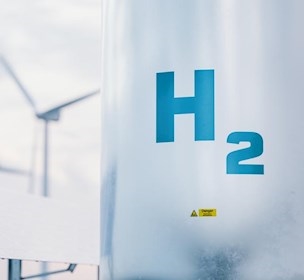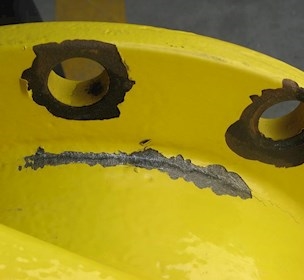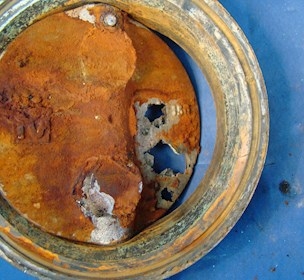Safe handling of chemicals at the world's largest Power-to-X plant: Kassø e-methanol facility
A tailored course on safe chemical handling, material selection, and material testing has prepared European Energy technicians to work with methanol, hydrogen and CO₂.
Lack of specialist knowledge in chemical handling
Since 2004, European Energy has worked on renewable energy projects involving wind and solar power. Today, the company operates the world's largest e-methanol facility, which will deliver e-methanol as fuel for, among other things, Maersk's container ships.
When European Energy launched its new Power-to-X facility in Kassø, southern Denmark, they faced a key challenge: While the technicians were highly skilled, they lacked hands-on experience with substances like methanol, CO₂ and hydrogen, which are integral to electrolysis and methanol production.
"We needed in-depth specialist knowledge of these substances and their individual properties. This is a completely new field with little practical experience so far," says Carsten Sørensen, Plant Manager at European Energy.
With methanol, hydrogen and CO₂ as the plant's core substances, safe handling and understanding material impact were crucial for personal safety and operational stability.
Safe chemical handling starts with understanding
European Energy wanted a course to provide its staff with the necessary knowledge of chemical properties and the safety implications of handling and operating them in larger quantities.
In collaboration with FORCE Technology, a course was tailored to cover the following areas for methanol, hydrogen, CO₂, nitrogen and oxygen:
- Properties
- Handling
- Workplace scenarios
- Safety during transport and transfer
- Typical failure mechanisms and degradation
- Material selection and material testing.
"The course was meant to equip us to handle these substances well-considered and safety-consciously—and to understand the specific conditions we need to be aware of," says Carsten Sørensen. He adds, "The course also allows us to demonstrate to authorities that we train our staff responsibly."

methanol, CO₂ and hydrogen daily at the world's largest e-methanol facility.
(Photo credit: European Energy)
Combining material selection and laboratory analysis
The course explored how methanol affects various steel types and sealing materials. Insights from FORCE Technology's laboratories illustrated where and how materials may fail and how to prevent them.
The course provided in-depth insights into material selection, such as how methanol affects different types of steel and sealing materials. Insights from FORCE Technology's laboratories illustrated where and how materials can fail and what can be done to prevent them
"FORCE Technology tied everything together by combining insights from our plant's material challenges with lab experience in testing how these substances affect materials. That was truly unique," Carsten Sørensen highlights.
This knowledge helped participants identify critical components and assess how to maintain and monitor equipment in the future.
From chemical handling theory to practice
The course combined academic knowledge, real-world experience, and health and safety risks into a concentrated format accessible for participants from varied professional backgrounds.
"We managed to demystify substances that often make people nervous. It wasn't just about learning chemistry but understanding the reality we work in. And FORCE Technology knew how to make it relevant," says Carsten Sørensen.
The next step could be a course on the processes within a Power-to-X facility and what happens in them.
We've combined specialist knowledge of individual substances with real-life examples – good and bad – by drawing on expertise across FORCE Technology. This has given our employees a solid foundation to manage these chemicals safely in their day-to-day work. Because this is only the beginning of learning how to run the facility.Carsten Sørensen / Plant Manager, European Energy
Chemical handling course boosts everyday and long-term safety
European Energy's staff are now better equipped to handle hazardous substances like methanol and hydrogen. They've gained a basic understanding of the materials' properties and how to protect themselves and the plant.
"We've combined specialist knowledge of individual substances with real-life examples – good and bad – by drawing on expertise across FORCE Technology. This has given our employees a solid foundation to manage these chemicals safely in their day-to-day work. Because this is only the beginning of learning how to run the facility," concludes Carsten Sørensen from European Energy.





